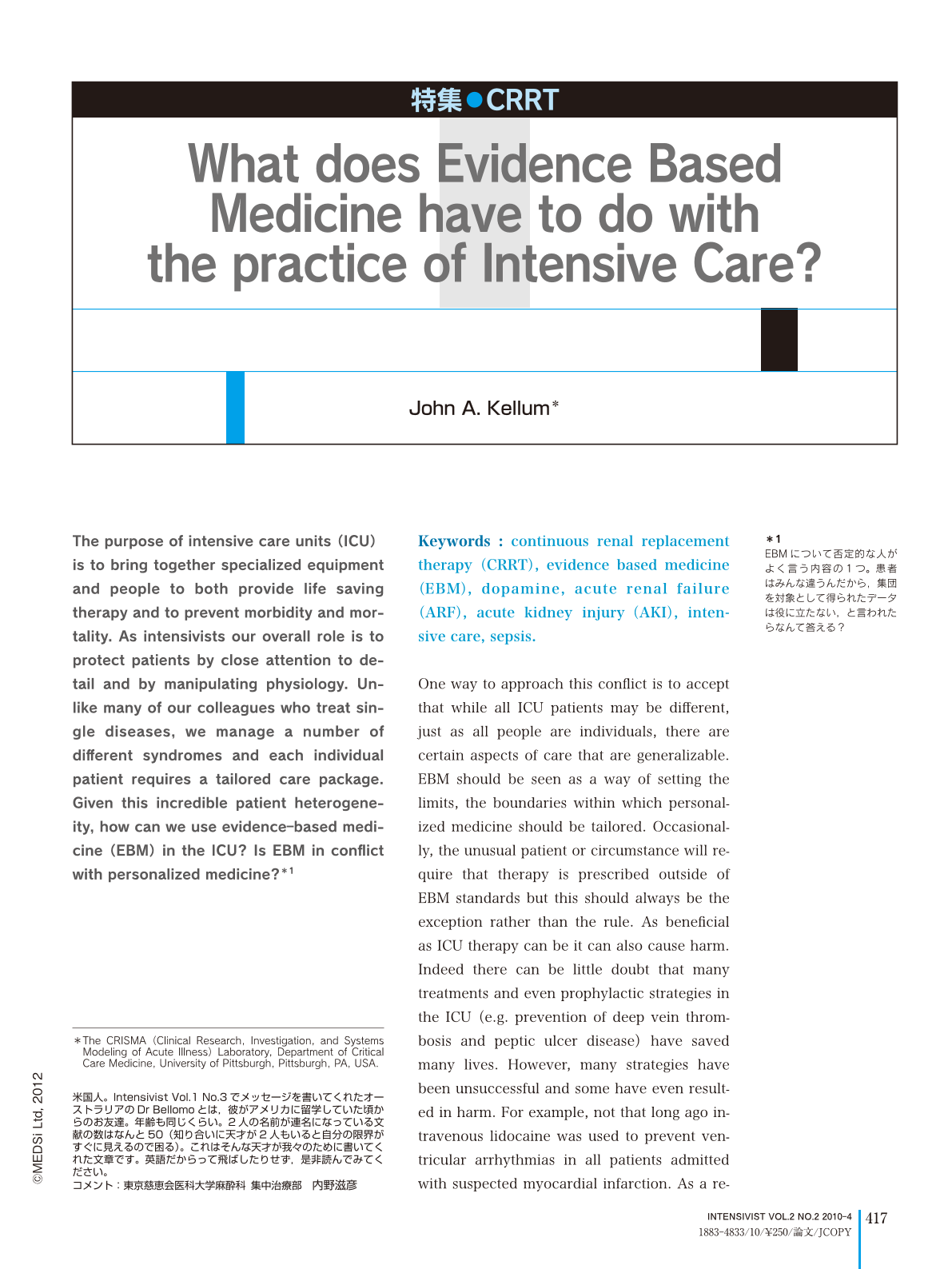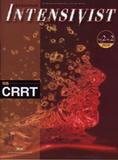特集 CRRT
17.What does Evidence Based Medicine have to do with the practice of Intensive Care?
John A. Kellum
1
1The CRISMA (Clinical Research, Investigation, and Systems Modeling of Acute Illness) Laboratory, Department of Critical Care Medicine, University of Pittsburgh, Pittsburgh, PA, USA.
キーワード:
continuous renal replacement therapy(CRRT)
,
evidence based medicine(EBM)
,
dopamine
,
acute renal failure(ARF)
,
acute kidney injury(AKI)
,
intensive care
,
sepsis
Keyword:
continuous renal replacement therapy(CRRT)
,
evidence based medicine(EBM)
,
dopamine
,
acute renal failure(ARF)
,
acute kidney injury(AKI)
,
intensive care
,
sepsis
pp.417-420
発行日 2010年4月1日
Published Date 2010/4/1
DOI https://doi.org/10.11477/mf.3102100303
- 有料閲覧
- 文献概要
- 1ページ目
- 参考文献
The purpose of intensive care units (ICU) is to bring together specialized equipment and people to both provide life saving therapy and to prevent morbidity and mortality. As intensivists our overall role is to protect patients by close attention to detail and by manipulating physiology. Unlike many of our colleagues who treat single diseases, we manage a number of different syndromes and each individual patient requires a tailored care package. Given this incredible patient heterogeneity, how can we use evidence-based medicine (EBM) in the ICU? Is EBM in conflict with personalized medicine?*1

Copyright © 2010, MEDICAL SCIENCES INTERNATIONAL, LTD. All rights reserved.


